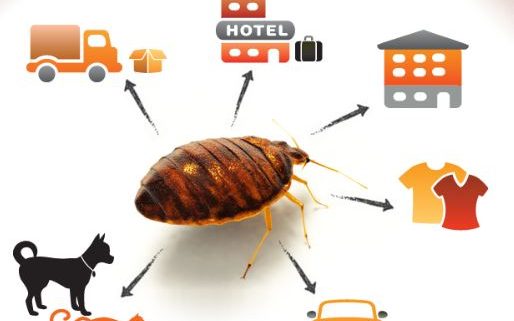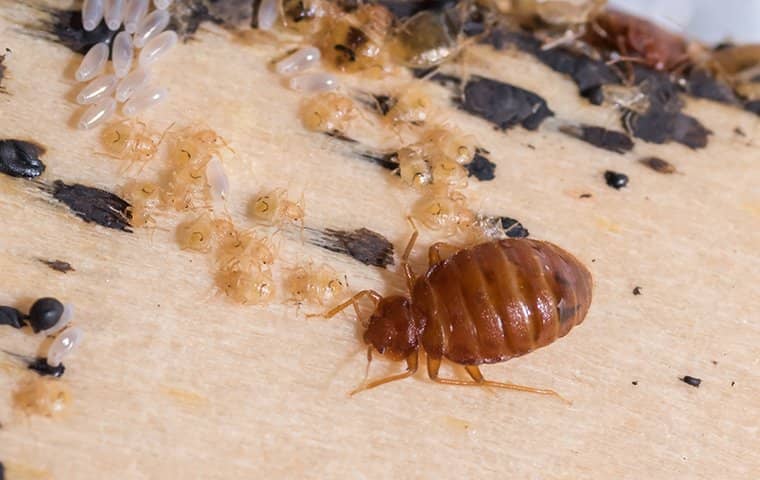Sorts Of Insect Control: Which Technique Is Right for Your Infestation?
When faced with a pest problem, the choice of a proper technique for parasite control is crucial in properly managing the scenario. From chemical therapies to biological solutions, there exists an array of methods that can be used to resolve various kinds of bugs. Each approach comes with its very own set of factors to consider and advantages, making the decision-making procedure a nuanced one. Comprehending the nuances of each technique and evaluating their compatibility with the specific parasite invasion at hand is vital for attaining long-lasting success in insect administration. By discovering the different kinds of bug control methods offered, individuals can make educated decisions customized to their one-of-a-kind scenarios, making certain a more effective and sustainable outcome in parasite elimination.
Chemical Pest Control
Chemical insect control involves using artificial or naturally derived chemicals to manage and eradicate pest populaces efficiently. This approach is frequently used in agriculture, forestry, and household setups to combat a wide variety of parasites, including weeds, insects, and rodents. Using chemical pesticides can provide fast and targeted services to pest infestations, making it a prominent choice for several individuals and services.
Among the crucial benefits of chemical pest control is its capability to promptly remove insects, lowering the threat of damage to crops, property, and human health and wellness. By using certain chemicals that target specific pests, this method can efficiently regulate invasions while reducing damage to advantageous organisms and the setting when used appropriately.
However, the usage of chemical pest control additionally raises concerns regarding possible damaging impacts on non-target varieties, water sources, and human health and wellness. It is crucial to follow security guidelines, apply chemicals sensibly, and consider alternative bug control techniques to minimize these dangers and ensure lasting insect administration techniques.
Biological Insect Control
Biological pest control, likewise referred to as biocontrol, utilizes living organisms to take care of and reduce bug populaces naturally. This technique uses the power of nature to manage bugs without the requirement for synthetic chemicals. Biocontrol can entail the introduction of all-natural opponents of the bug species, such as parasites, predators, or pathogens, to subdue bug populaces. By making use of the bug's all-natural killers or virus, organic parasite control provides a lasting and ecologically pleasant remedy to pest monitoring.

Mechanical Pest Control
Utilizing physical and hands-on techniques to handle insect populations, mechanical bug control supplies a different technique that does not depend on the usage of living organisms or artificial chemicals. This technique involves the use of barriers, traps, or other devices to literally prevent or eliminate bugs. By obstructing insect entry factors or establishing traps to capture them, mechanical bug control can efficiently reduce infestations without introducing chemicals right into the environment.
One common instance of mechanical pest control is making use of mesh displays on doors and windows to avoid pests from entering structures. This basic yet efficient technique serves as a physical obstacle, maintaining insects out while permitting for appropriate air flow. Additionally, tools like mousetraps, fly swatters, and ultrasonic repellents fall under the mechanical parasite control group.
While mechanical insect control techniques can be labor-intensive and call for regular surveillance and maintenance, they provide a lasting and eco-friendly solution for handling bug problems. By combining different mechanical methods, homeowner can create a thorough parasite control method that minimizes dependence on chemical pesticides.
Physical Pest Control

Some common physical pest control approaches consist of making use of barriers such as nets or displays to avoid insect entry, catches to record and eliminate parasites, and hand-picking to physically get rid of insects from plants or structures. In addition, strategies like warm therapies can be made use of to regulate bugs like bed bugs by increasing the temperature to degrees that are dangerous to the bugs.
Physical parasite click here for info control is particularly useful in integrated pest administration (IPM) methods, where multiple bug control methods are integrated for effective pest administration while reducing making use of chemicals. By using physical pest control techniques, people can successfully resolve insect invasions with minimal ecological effect.
Integrated Bug Management
When applying physical pest control approaches as part of pest management strategies, Integrated Pest Monitoring (IPM) arises as an extensive strategy that leverages different techniques to effectively regulate pest populations. IPM concentrates on long-term prevention of bugs with a mix of organic, social, physical, and chemical devices customized to details pest problems. By incorporating several control methods, IPM aims to decrease the threats linked with pests while also minimizing dependence on chemical solutions.
One trick element of IPM is the emphasis on monitoring and examining pest populaces to identify the most proper control methods. This positive method enables very early treatment and targeted methods, causing extra reliable bug administration. In addition, IPM advertises ecologically pleasant practices by prioritizing non-chemical control approaches and only utilizing pesticides as a last hope.
Final Thought

By using the insect's all-natural killers or pathogens, organic insect control uses a ecologically pleasant and lasting service to pest administration. - Kings Bed bug exterminator Cincinnati
Using physical and hands-on methods to take care of parasite populaces, mechanical insect control provides an alternate approach that does not count on the usage of living organisms or synthetic chemicals.An efficient approach to handling insect populations without relying on chemical or biological methods pop over to this web-site involves the use of physical parasite control methods.When executing physical bug control techniques as part of insect administration techniques, Integrated Pest Administration (IPM) arises as a thorough approach that leverages numerous methods to properly manage pest populaces. Chemical bug control entails the use of chemicals, biological bug control utilizes natural killers, mechanical pest control includes physical obstacles, physical insect control consists of trapping or eliminating parasites, and integrated bug management combines several methods for an all natural approach to pest control.